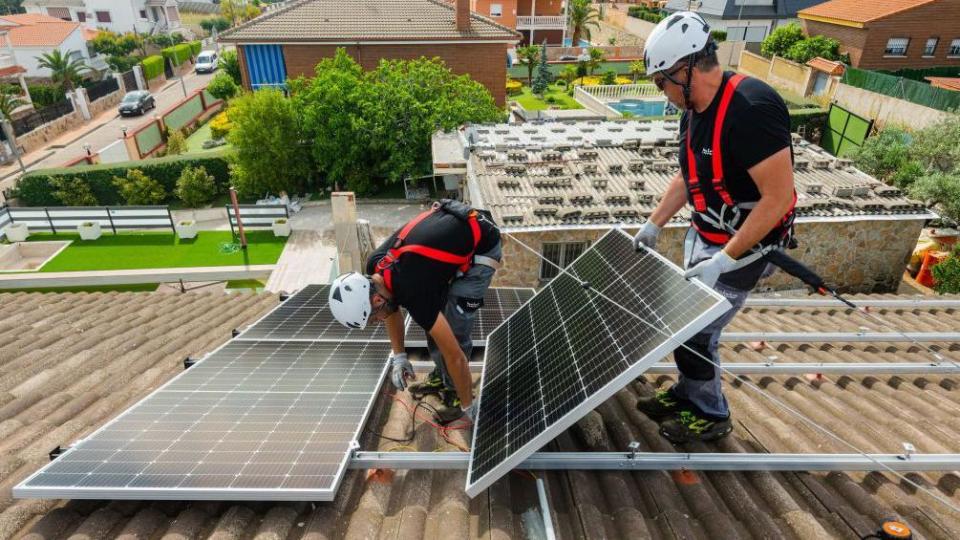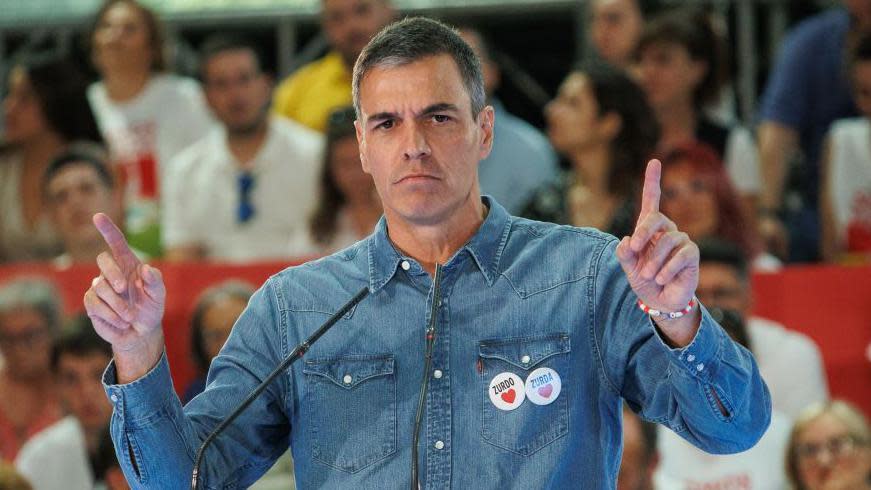The patchwork plains of Castilla-La Mancha in central Spain were once known for their windmills.
But now it is wind turbines, their modern equivalent, that are much more visible on the region’s horizon.
The 28 vast turbines of the Sierra del Romeral wind farm, situated on hills not far from the historic city of Toledo, overlook this landscape.
Operated by the Spanish company Iberdrola, they are part of a trend that has accelerated the production of renewable energy in Spain over the last half decade, making the country an important presence in the industry.
Spain’s total wind production capacity, its main renewable source in recent years, has doubled since 2008. Solar power capacity, meanwhile, has increased eightfold during the same period.
This makes Spain the EU member state with the second largest renewable energy infrastructure, after Sweden in first place.
Earlier this year, the Prime Minister of Spain’s Socialist Workers’ Party, Pedro Sánchezdescribed his country as “a driving force of the energy transition on a global scale”.
The boom began shortly after the arrival of a new government under Sánchez in 2018, with the removal of regulatory obstacles and the introduction of subsidies for renewable installations. The pandemic further accelerated the trend domestically.
“The impact of Covid was very positive for our sector”, says José Donoso, executive director of UNEF, the Spanish Photovoltaic Association, which represents the solar panel sector. “People saved money, thought about what to do with it and many of them decided it was better to invest in their roof than in their bank.”
Meanwhile, the government has introduced ambitious new targets, including covering 81% of Spain’s electricity needs with renewable energy by 2030.

However, behind this success story, there are concerns in the electricity sector caused by an imbalance between supply and demand, with sometimes a surplus of electricity.
Although the Spanish economy has recovered strongly from the trauma of the Covid pandemic and is growing faster than all the other major economies in the bloc, electricity consumption has been declining in recent years.
Last year, electricity demand was still below that recorded in the pandemic year of 2020, and the lowest since 2003.
“What we saw until 2005 was that when GDP increased, demand for electricity increased more than GDP,” says Miguel de la Torre Rodríguez, head of systems development at Red Eléctrica (REE), the company that operates the grid. national of Spain.
More recently, he says, “we saw that demand increased less than GDP. What we are seeing is a decoupling between energy intensity and the economy.”
There are several reasons for the recent drop in demand. They include the energy crisis triggered by Russia’s invasion of Ukraine in 2022, which caused businesses and homes across Europe to reduce usage.
Additionally, energy efficiency has improved and become more common.
The increased use of renewable energy has also contributed to the reduction in demand for electricity from the national grid.
Rodríguez says that during the day, when solar energy production is particularly strong, the balance between supply and demand can be imbalanced, having an impact on prices.
“As the energy system always has to be in balance – demand has to be equal to generation – this means that there was excess production during those hours,” he says.
“This caused prices to drop, especially during certain times when prices were zero or even negative.”


While these low prices are welcome for consumers, they are potentially a problem when it comes to attracting investment into the industry.
“This could make it more difficult for investors to increase their investment in new electricity based on renewable energy,” says Sara Pizzinato, renewable energy specialist at Greenpeace Spain.
“This could be a bottleneck for the energy transition.”
Concerns about Spain having an excess of electricity have led to discussion about the need to accelerate the “electrification” of the economy, which involves moving it away from fossil fuels. The Sánchez government has set a goal of making 34% of the economy dependent on electricity by 2030.
“This process is progressing slowly and we need to speed it up”, says José Donoso from UNEF.
“Electricity is the cheapest and most competitive way to produce clean energy.
“We need facilities that use electricity instead of fossil fuels.”
The move to complete dependence on electricity is seen as unrealistic, as some important sectors, such as chemicals and metals, will have difficulty in the transition.
However, Donoso and others see plenty of room for faster electrification. For example, Spain lags behind many of its European neighbors when it comes to installing heat pumps in homes and using electric cars, which only represent around 6% of vehicles on the road.
Ms. Pizzinato agrees that electrification is crucial, but says there are other ways to resolve the supply-demand dilemma, including phasing out the use of nuclear power plants more quickly and increasing energy storage capacity.
She says: “We need to involve more people and more industries in demand-side management, to ensure that the necessary flexibility in the system is available to make generation and demand better matched during the day and night.”




































